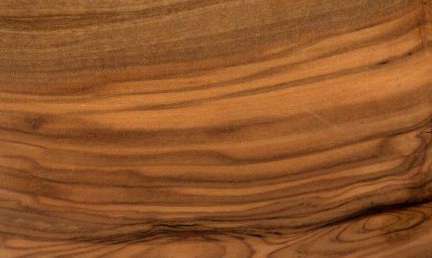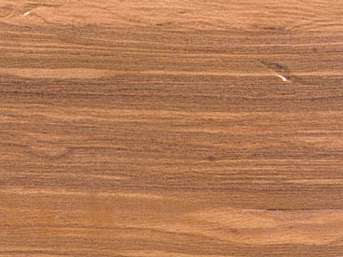 
Olive (Olea europaea)
Family: Oleaceae
Common names: Olive
Distributed in: Albania, Algeria, Armenia, Greece, Iran, Italy, Libya, Morocco, Spain, Tunisia, Turkey, United States (Mediterranean Sea Region)
Distribution overview: Olive is indigenous to the Mediterranean region including southern Europe, the Middle East and North Africa. It grows especially in Italy and is in the same family as Ash (Fraxinus spp). The species is also cultivated in orchards throughout California, and is also found in Arizona and Florida. It prefer sub tropical or Mediterranean climates, especially hot, dry regions under irrigation.
Common uses: Chairs, Chests, Concealed parts (Furniture), Desks, Dining-room furniture, Dowell pins, Dowells, Drawer sides, Fine furniture, Floor lamps, Furniture , Furniture components, Furniture squares or stock, Hatracks, Jewelry box, Kitchen cabinets, Living-room suites, Office furniture, Radio - stereo - TV cabinets, Rustic furniture, Stools, Tables , Utility furniture, Wardrobes
Product sources: Olive is cultivated in relatively large quantities for oil and olives. It is often not readily available in the timber trade. Occasionally, burl veneer, lathe billets, and carving flitches are available, but they are typically expensive.
Environment profile: Data source is World Conservation Monitoring Center
A subspecies, O. europea ssp. maderensis is Rare
Tree size: Trunk diameter is 200-250 cm
Colors: the heart isRed, Yellowand the sapwoodYellow, Yellowish.The grain isShallowly interlocked, the textureMediumand the lusterMedium
Natural durability: Susceptible to insect attack, Susceptible to termite attack
Odor: No specific smell or taste
Kiln Schedules:
Very mild kiln schedules are recommended
Kiln Drying Rate: Naturally dries quickly
Drying Defects: Resin Exudation, Splitting
Ease of Drying: Thick Stock Requires Care
Comments: Hard Heavy Strong
Blunting Effect: Little
Boring: Fairly easy to very easy
Carving: Fairly Easy to Very Easy
Cutting Resistance: Gum-Up
Gluing: Fairly Easy to Very Easy
Mortising: Fairly Easy to Very Easy
Moulding: Fairly Easy to Very Easy
Movement in Service: Fairly Easy to Very Easy
Nailing: Fairly Easy to Very Easy, Very Good to Excellent
Planing: Fairly Easy to Very Easy
Resistance to Impregnation: Sapwood is permeable
Response to hand tools: Responds Readily
Sanding: Fairly Easy to Very Easy
Veneering qualities: Veneers easily, Veneers moderately easy
Screwing: Fairly Easy to Very Easy, Very Good to Excellent Results; Turning: Special attention required
Painting: Very Good to Excellent; Polishing: Fairly Easy to Very Easy; Staining: Very Good to Excellent; Varnishing: Very Good to Excellent;
- Numerical data Metric
- Numerical data English
- Strength properties
- References
 |
 |
 |
 |
| Item |
Green |
Dry |
Metric |
| Specific Gravity |
|
|
|
| Density |
|
|
kg/m3 |
| Bending Strength |
|
|
kg/cm2 |
| Crushing Strength |
|
|
kg/cm2 |
| Hardness |
|
|
kg |
| Impact Strength |
|
|
cm |
| Shearing Strength |
|
|
kg/cm2 |
| Stiffness |
|
|
1000 kg/cm2 |
| Tangential Shrinkage |
|
|
% |
| Radial Shrinkage |
|
|
% |
| Weight |
|
|
kg/m3 |
| Maximum Load |
|
|
cm-kg/cm3 |
| Toughness |
|
|
cm-kg |
| Static Bending |
|
|
kg/cm2 |
|
Arno, J. 1988. Olea europa - Olive. In A Guide to Useful Woods of the World. Flynn Jr., J.H., Editor. King Philip Publishing Co., Portland, Maine. 1994. Page 252-253.Constantine, Jr., A.J. 1975. Know Your Woods: A Complete Guide to Trees, Woods, and Veneers. Revised by H.J. Hobbs. Charles Scribner's Sons, New York.Dave Faison. Into the Woods. Personal Communication, 1993.Lincoln, W.A. 1986. World Woods in Color. Linden Publishing Co. Inc., Fresno, California.Little, E.L.1980.The Audobon Society Field Guide to North American Trees - Western Region.Published by Arthur A. Knopf, New York.
|









